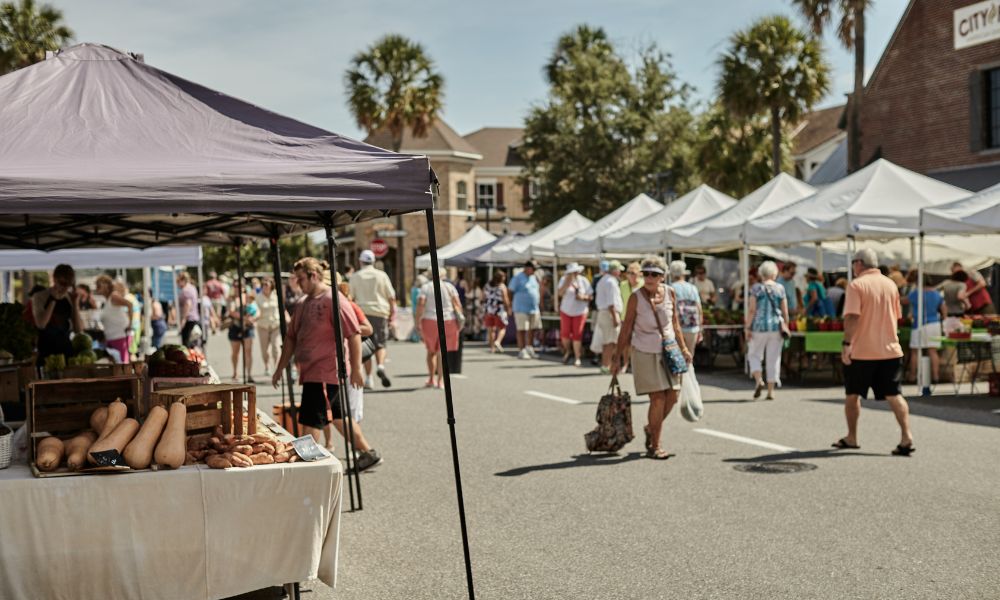Farmers' markets are beautiful crossovers of culture, food, and art. If you want to bring the fun to your local community, read on and learn how to start one!
Farmers’ markets aren’t just about the produce! While fresh fruit and vegetables are undoubtedly the best parts, farmers’ markets are also about sharing the artisanal goods and services of local, hardworking community members. They are great events to bring the neighborhood together, get to know one another, and maybe even try something new. If you want to enhance the beauty and culture of your community, learn what you need to plan a farmers market and start one near you!
Get Community Support
Taking the right steps to establish a planning team and get support from the community and your local government takes time. Your planning team should consist of people who are as passionate about this project as you are. Ideally, they are community board or organization members, potential vendors or customers, or experienced food and beverage producers.
After forming a solid team, consider hosting a community meeting and conducting a survey to establish how community members and local vendors feel about opening a farmers’ market. This should help you establish if local businesses would feel threatened by a farmers’ market, if customers would attend, what products they may be looking for, and the overall interest and demand.
Find a Location
If your community is interested and willing to host a farmers’ market, it’s time to start looking for a location. Start small, as there may not be many members at first. The ideal location should be near customers, have a parking area, offer some form of seating for eating and chatting, and provide weather cover.
Weather covering can be tricky, as the local climate varies. It can be unpredictable in some places, and you want to protect your guests and vendors. If the weather in your area is particularly unpredictable, consider establishing a small fabric coverall building if you have the space and permission. Remember to ask the right questions about a fabric building so it meets your needs and withstands the local climate.
Attract Vendors and Obtain Permits
Your next two, and arguably most important, jobs are finding vendors and obtaining the necessary licenses and permits. Hopefully, your team has some vendors or connections. Without your vendors, there is no market! If you’re struggling to find vendors, speak with local artists, farmer associations, and small businesses.
Licensing and permits will vary based on location. You’ll likely need a Certificate of Occupancy and a Retail Food Establishment License. A CO ensures your event meets all zoning laws and building codes; you can typically obtain it through the property’s landlord. A Retail Food Establishment License ensures the products for sale meet the standards of the local county health department.
Now that you know what you need to plan a farmers’ market, nothing is stopping you from bringing extra joy, life, and vibrancy to your community! Start working with local artisans, vendors, and farmers today, and help your local economy thrive!






































